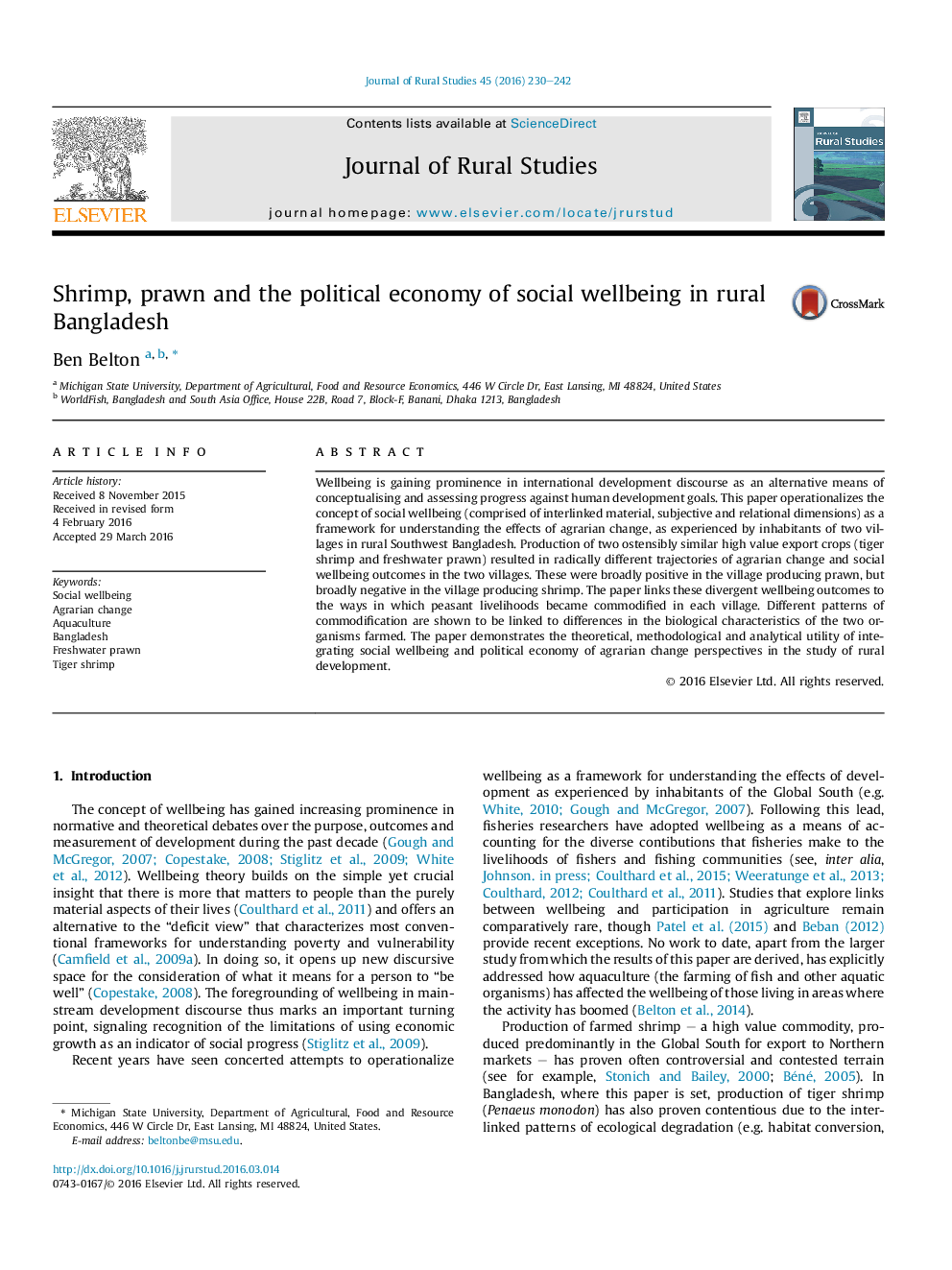| Article ID | Journal | Published Year | Pages | File Type |
|---|---|---|---|---|
| 6545425 | Journal of Rural Studies | 2016 | 13 Pages |
Abstract
Wellbeing is gaining prominence in international development discourse as an alternative means of conceptualising and assessing progress against human development goals. This paper operationalizes the concept of social wellbeing (comprised of interlinked material, subjective and relational dimensions) as a framework for understanding the effects of agrarian change, as experienced by inhabitants of two villages in rural Southwest Bangladesh. Production of two ostensibly similar high value export crops (tiger shrimp and freshwater prawn) resulted in radically different trajectories of agrarian change and social wellbeing outcomes in the two villages. These were broadly positive in the village producing prawn, but broadly negative in the village producing shrimp. The paper links these divergent wellbeing outcomes to the ways in which peasant livelihoods became commodified in each village. Different patterns of commodification are shown to be linked to differences in the biological characteristics of the two organisms farmed. The paper demonstrates the theoretical, methodological and analytical utility of integrating social wellbeing and political economy of agrarian change perspectives in the study of rural development.
Related Topics
Life Sciences
Agricultural and Biological Sciences
Forestry
Authors
Ben Belton,
